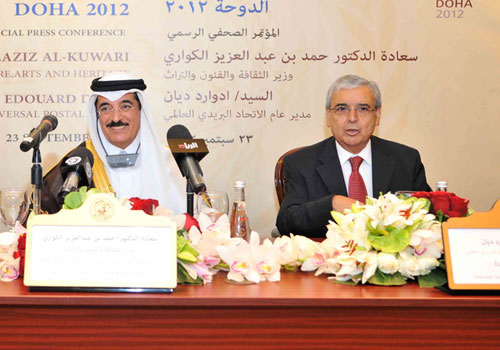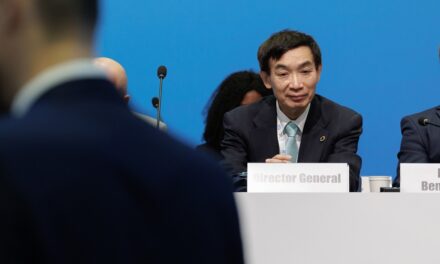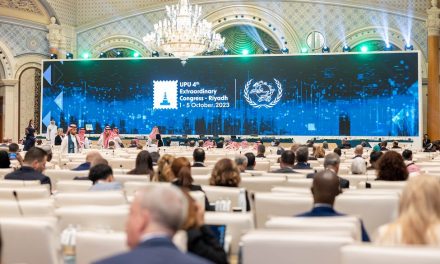
UPU gathers for 25th Congress in Doha, Qatar
The Universal Postal Union officially began its 25th Congress today, with more than 2,200 delegates expected to convene in Doha, Qatar, over the next month. The UN-affiliated agency representing the postal administrations of 192 countries around the world is gathering to discuss the major issues of the current postal market and put together a new roadmap for the sector for 2013 to 2016.
New technologies and the rapid transformation of the postal industry are key issues for discussion at the Congress, which runs until 15th October.
Speaking at the opening of the Congress this morning, Qatar’s minister of culture, arts and heritage, Dr Hamad Bin Abdulaziz, said revising the organisational structures and legal texts of the UPU in the light of modern-day needs was “of great importance”, particularly taking account of the “constant state of flux” in the technological, economic and political environment.
He said the UPU Congress had to define a future strategy that would provide programs and resources to help develop markets and support the diversification of products and services – especially in areas like ecommerce and payment services.
But he also urged the UPU Congress to pay close attention to the needs of developing countries.
“This Congress should devote a significant portion of its time to examining ways and means of aiding developing countries and providing them with technical assistance in the areas of planning, organisation, operations, training, exchange of experts and the granting of fellowships and funding,” said the minister.

Minister Dr H. Bin Abdulaziz Al-Kuwari, and UPU Director General E. Dayan as the Doha Congress gets underway
Speaking to reporters, Dr Bin Abdulaziz said that while technology was making communications easier and faster than ever before, it did not threaten the role of the Post.
“These changes actually reaffirm the Post’s role and that’s why we require a new strategy, as the theme of the Congress – ‘New world, new strategy’ – reflects,” he said.
Strategy
During the Congress the UPU delegates will discuss and make minor modifications to the Doha Postal Strategy before formally adopting the document as the roadmap for 2013-2016.
The strategy, which has already been subject to consultation among UPU’s members, has four main proposed goals for the organisation up to the next Congress:
1. Improve interoperability of international postal networks
2. Provide technical knowledge
3. Promote innovative products and services
4. Foster sustainable development of the postal sector
This week will see mainly committee meetings examining the various proposals for UPU measures and programs, with plenary sessions set to begin in about two weeks’ time.
One of the key events of the Doha Congress will be the UPU’s first ever ministerial conference, set for 8th October, when ministers from countries including Italy, Nigeria and Japan will discuss the future of the sector.
Some of the big issues expected to be discussed at the Congress this year include how Posts work with governments and border authorities to move mail more efficiently across the world and how different countries remunerate each other for processing international mail.
Elections
The final week of Congress will see elections taking place to decide on the formation of the UPU and its main committees for the next four years.
This will include elections to decide the next director general and deputy director general of the UPU, as well as the members of the UPU Council of Administration and Postal Operations Council.
The Council of Administration comprises 41 member countries meeting annually to guide the work of the UPU between Congresses. The Postal Operations Council is the “technical ad operational mind” of the UPU – 40 member countries that work to help Posts modernise and improve their products and services.
UPU director general Edouard Dayan, who comes to the end of his term at the end of this year, said in its 25th Congress the UPU was still aiming at building a worldwide postal industry to give every citizen a chance to communicate through the postal network.
He said: “Although communication has undergone a profound transformation since the UPU was created, new technologies are providing opportunities for the postal sector to develop and adapt to the new realities of today.”












